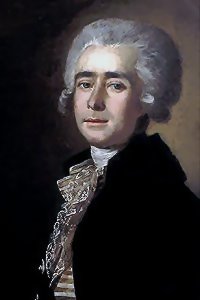Introduction
Born: October 28, 1751, Glukhov (now Hlukhiv, or Глухів), Ukraine.
Died: October 10, 1825, St. Petersburg, Russia.
Buried: St. Alexander Nevsky Monastery, St. Petersburg, Russia.

Born: October 28, 1751, Glukhov (now Hlukhiv, or Глухів), Ukraine.
Died: October 10, 1825, St. Petersburg, Russia.
Buried: St. Alexander Nevsky Monastery, St. Petersburg, Russia.

Bortniansky’s musical career began in the church choir. As a young man, he studied with Baldassare Galuppi (il Buranello) in St. Petersburg.
In 1769, Bortniansky followed Galuppi to Italy (with the help of a stipend from Russian Empress Catherine) to work in opera. After returning to Russia, he became master of the court choir in St. Petersburg.
In 1796, he was appointed director of the czar’s court chapel and a councilor of state.
Bortniansky also wrote a number of choruses in Old Church
Slavonic.
After his death, his work spread to Prussia, where his music appeared in the Altpreußische Agende (Old Prussian Agenda) in 1829.
His tune St. Petersburg is a traditional closing piece for the Großer Zapfenstreich (ceremonial tattoo) in German military music.